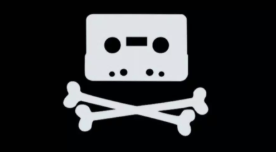The “repeat infringer” issue remains a hot topic in US courts and over the years several ISPs have been sued because of them.
These Internet providers stand accused of not doing enough to stop copyright infringers on their networks, even after receiving multiple ‘copyright infringement’ notifications from rightsholders.
The most prominent outcome thus far is the guilty verdict against Cox from late 2019. Following a jury trial, the company was ordered to pay a billion dollars in damages to a group of major record labels.
Record Labels vs. Grande Trial
Following the verdict, several of the labels shifted their focus to the next targets, including ISP Grande Communications, which is now owned by Astound. A trial was initially scheduled to start in early 2020 but due to time constraints and the pandemic, it was postponed multiple times.
A few days ago, the jury trial finally began at a federal court in the Western District of Texas. In anticipation, both parties submitted motions to exclude several topics, with partial success. But with the trial now underway, disagreement remains an issue.
During the opening statements, Grande gave the jury a brief overview of its defense. This included a mention of a witness who had heard from several subscribers targeted by piracy accusations who said they had done nothing wrong.
“And you’re going to learn that customers would call in confused about the accusations against them. You’re going to hear from one of our witnesses who talked to one of those people directly, and he’s going to say they swear they did nothing wrong. How is Grande supposed to know who is telling the truth? Is it Rightscorp with e-mail accusations? Is it the subscriber who calls in swearing they didn’t do anything wrong?” – from Grande’s opening statement
This intro came as a total surprise to the record labels, which were under the impression that responses from subscribers wouldn’t be part of the defense. This wasn’t just a hunch either, as the music companies previously asked Grande about the availability of this type of evidence during discovery.
No Innocent Infringer Evidence?
At a deposition, a Grande employee testified that there wasn’t any admissible evidence about customer calls that covered the accuracy of copyright infringement notices.
“At that time, Grande’s witness testified that admissible information concerning customer calls regarding copyright infringement does not exist,” the music companies informed the court.
“In particular, Grande represented under oath that it performed an adequate investigation of its conversations with customers and based on that investigation, it lacked knowledge of—and therefore could not disclose to Plaintiffs—the contents of any particular customer phone calls on this subject matter.”
The opening statement at trial suggests otherwise. It wasn’t what the labels expected and they felt ambushed. As such, they asked the court to preclude the evidence from being discussed during the trial.
Aside from contradicting the information obtained during discovery, the testimony should also be rejected as hearsay, the labels said. The ISP apparently wants to rely on testimony from someone who spoke with an accused subscriber, without identifying the person or detailing the piracy notice.
“Furthermore, to the extent Grande seeks to introduce generalized testimony on this topic, it is clear that the proffer of unverified generic statements from unidentified customers is rank hearsay and does not satisfy the accuracy and trustworthiness requirements necessary to rely on any hearsay exceptions,” the labels note.
Rightscorp and BMG vs. Cox
In addition to surprising the labels with the innocent infringer issue, during its opening statement Grande also criticized the infringement notices directly. The notices were sent by anti-piracy outfit Rightscorp and are not reliable, the ISP argued.
According to Grande’s attorney, the music companies have “known for years and years” that Rightscorp’s notices are problematic but consider them “lottery tickets” with the potential to bring in hundreds of millions of dollars.
At the present trial, the labels want to show that Rightscorp’s evidence isn’t illegitimate. The notices were central to the BMG vs. Cox trial, which resulted in a $25 million damages award. As such, evidence from that case could be relevant here.
The court previously restricted the potential use of that evidence to merely mentioning that Cox was found liable based on these notices. However, a new motion filed by the music companies requests permission to use emails and testimony that reference the case.
Grande fiercely objects and notes that the $25 million verdict wasn’t the end of that case. The initial verdict was overturned, with BMG and Cox later reaching a confidential settlement.
“If Plaintiffs were to introduce evidence regarding the Cox jury verdict, then Grande would have to respond with evidence regarding the evidence adduced (or not) at trial in Cox, the Fourth Circuit’s reversal, and the parties’ subsequent settlement. All of this would result in the inevitable ‘trial within a trial’ that is to be avoided at all costs,” Grande notes.
At the time of writing, there’s no public court order on the record labels’ requests. In any case, the trial will continue, with or without the “innocent infringer” and “Cox litigation” evidence.
—
A copy of the trial motions in limine to exclude the innocent infringer evidence and to introduce the BMG vs. Cox evidence are available here (1,2)
 The “repeat infringer” issue remains a hot topic in US courts and over the years several ISPs have been sued because of them.
The “repeat infringer” issue remains a hot topic in US courts and over the years several ISPs have been sued because of them.



